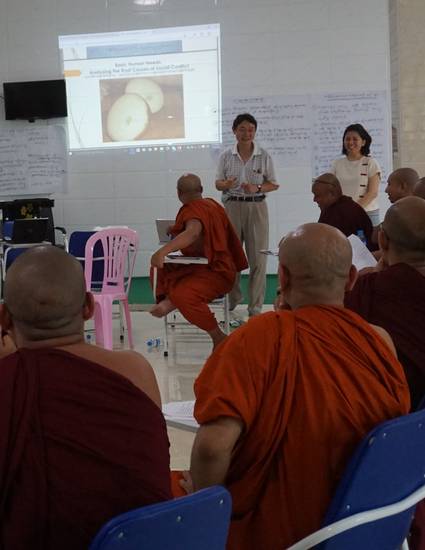
Article
Toward a Buddhist Theory of Structural Peace: Lessons from Myanmar in Transition
Peace and Conflict Studies
(2015)
Abstract
This essay analyzes the result of in-depth interviews that the author conducted with Burmese Buddhist leaders, with a view toward building Buddhist theories of social conflict, reconciliation, and structural peace. Findings include their shared understanding of the deeply spiritual, inner-directed nature of conflict and reconciliation, and their highly divergent, contested understandings of the structural roots of human suffering in today’s globalized and interconnected world. To meet these structural challenges, this essay introduces the concept of structural awareness, which it defines as educated, enlightened consciousness to appreciate and act responsibly on the complex chains of causal relations in which well-intended action can inadvertently generate the suffering of others.
Keywords
- Buddhism,
- Myanmar,
- peace,
- conflict,
- structural violence
Disciplines
Publication Date
2015
DOI
https://nsuworks.nova.edu/pcs/vol22/iss1/3/
Citation Information
Tatsushi Arai. "Toward a Buddhist Theory of Structural Peace: Lessons from Myanmar in Transition" Peace and Conflict Studies Vol. Vol. 22 Iss. No. 1 (2015) Available at: http://works.bepress.com/tatsushi_arai/77/
